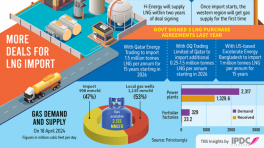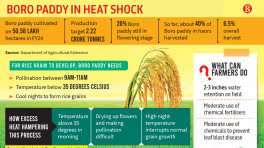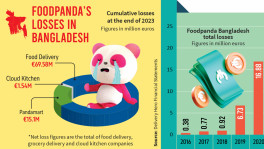Asia, Pacific must avoid K-shaped recovery: UN report
Developing Asia-Pacific economies are expected to grow by 5.9 per cent in 2021 and 5 per cent in 2022, after having experienced an estimated contraction of 1 per cent in 2020

The Asia-Pacific region needs large, yet attainable, investments in resilience to protect development gains amid a fragile and inequitable post-Covid-19 economic recovery, says a report released on Tuesday.
The report was released by the United Nations Economic and Social Commission for Asia and the Pacific (ESCAP) in Bangkok.
The Economic and Social Survey of Asia and the Pacific 2021: Towards post-Covid-19 resilient economies forecasts that, on average, developing Asia-Pacific economies are expected to grow by 5.9 per cent in 2021 and 5 per cent in 2022, after having experienced an estimated contraction of 1 per cent in 2020.
Despite a reasonably strong rebound expected in 2021, a "K-shaped recovery" is likely, with poorer countries and more vulnerable groups marginalized in the post-pandemic recovery and transition period.
The Survey estimates that because of the pandemic, an additional 89 million people in the region could have been pushed back into extreme poverty in 2020 at the $1.90 per day threshold, erasing years of progress in poverty reduction.
Working-hour losses in 2020 equaled 140 million full-time jobs, while severe disruptions of economic activity and education are likely to have caused a significant setback to human capital accumulation and productivity in the region.
For a more robust and inclusive recovery, the Survey calls for a more synchronized Covid-19 vaccination programme across countries and highlights opportunities to leverage regional cooperation.
At the same time, it recommends that fiscal and monetary support should be sustained, as premature tightening could increase long-term scars.
"Covid-19 is a shock like no other and it requires a response like no other," said Armida Salsiah Alisjahbana, United Nations Under-Secretary-General and Executive Secretary of ESCAP.
"The time is now for the Asia-Pacific region to seize this opportunity to speed up and make its transition towards more resilient, equitable, and green development the centerpiece of the post-pandemic economic recovery."
Looking beyond the pandemic, the Survey examines the broader risk landscape facing Asia-Pacific countries, including epidemics, natural disasters and financial crises.
It finds that adverse shocks, both economic and non-economic, result in permanent economic, social and environmental losses, and advises countries to take a more comprehensive approach to building resilience against future shocks.
Specifically, the Survey proposes a "build forward better" policy package for resilient post-Covid-19 economies that aims to ensure universal access to healthcare and social protection, close the digital divide and strengthen climate and clean energy actions.
It estimates that the package would reduce the number of people living in poverty in the region by almost 180 million people and cut carbon emissions by about 30 per cent in the long run.
Notably, the package would result in a modest fiscal and debt burden if accompanied by bold policy actions, such as ending fossil fuel subsidies and introducing a carbon tax.
Among other potential financing solutions, the Survey also recommends debt swaps-for-development initiatives for countries with special needs and those with limited fiscal space.
It also calls for international assistance to least developed countries burdened with significant "resilience gaps."
For his part, United Nations Secretary-General Antonio Guterres has recommended in a policy brief on Preventing Debt Crises In the Era of Covid-19 and Beyond: The Time to Act is Now, that countries address immediate liquidity constraints; debt overhangs and creating space for investment in crisis response, the Sustainable Development Goals and climate action; and reformation of the international debt architecture.
In conclusion, the Survey recommends that countries in the region should respond aggressively to adverse shocks to minimize the reversal of hard-won development gains. Swift and robust policy responses are needed to safeguard sustainable development in crisis times, and risk management must become central to development planning and policymaking.
Produced annually since 1947, the Economic and Social Survey of Asia and the Pacific is the oldest United Nations report on the region's progress.
The Survey provides analyses to guide policy discussion on the current and emerging socio-economic issues and policy challenges to support inclusive and sustainable development in the Asia-Pacific region.


 Keep updated, follow The Business Standard's Google news channel
Keep updated, follow The Business Standard's Google news channel
















